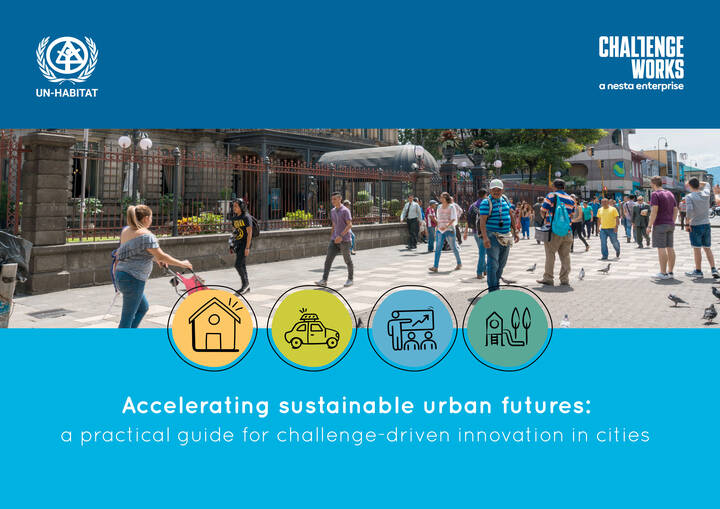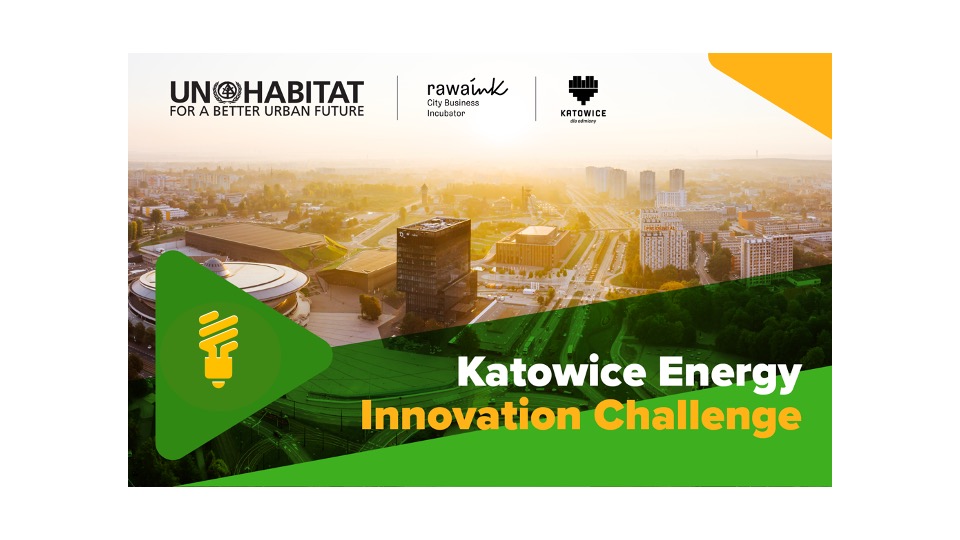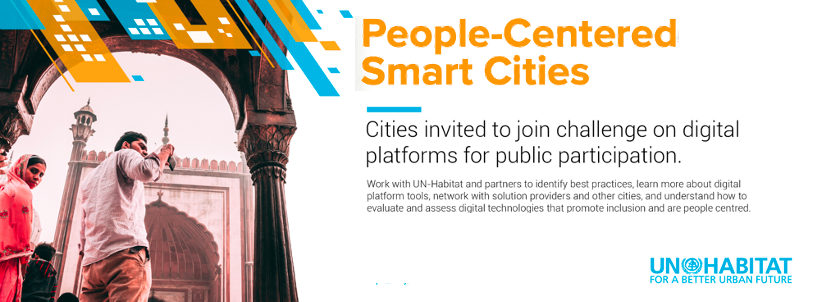Accelerating sustainable urban futures: a practical guide for challenge-driven innovation in cities
Building on the work of Challenge Works and UN-Habitat, this guide helps local government leaders and innovators apply challenge-driven innovation in cities. It offers a step-by-step approach, real-world examples, practical tips, and useful resources to tackle urban challenges using innovation.
Challenge-driven innovation focuses on solving real problems, fostering cross-sector collaboration, and scaling solutions for cities. It broadens the network of stakeholders who can contribute to urban innovation, unlocking investments, influencing policy, and strengthening institutional capacity.
Embracing the participatory and collaborative spirit of the Sustainable Development Goals, challenge-driven innovation provides a pathway for all stakeholders to coalesce towards a shared vision for sustainable urbanization. It carries the power to lead to wider system transformation – a shift in structures within a system to address root causes of a complex problem rather than just symptoms. Leveraging this innovation method therefore becomes a catalyst for transformative change.
This guide is designed for:
- City and local government officials committed to innovation for sustainable urbanization
- Organizations providing technical support, including UN agencies and city networks
- Funders and donors focused on sustainable urban development
- Innovators collaborating with local governments on solutions
The guide offers an introduction to challenge-driven innovation in cities and a five-step process for implementation, and also serves as a framework for training workshops.
Drawing from past and ongoing challenge-driven innovation initiatives, the guide highlights lessons learned while emphasizing the need for visionary approaches as today’s urban challenges are growing more complex in nature. It encourages rethinking how we live in cities and exploring new ways to make them more livable and sustainable.
This guide is a starting point for those eager to engage with urban innovation. It particularly aims to support lower-resourced cities by offering a practical tool to experiment with challenge-driven innovation.


